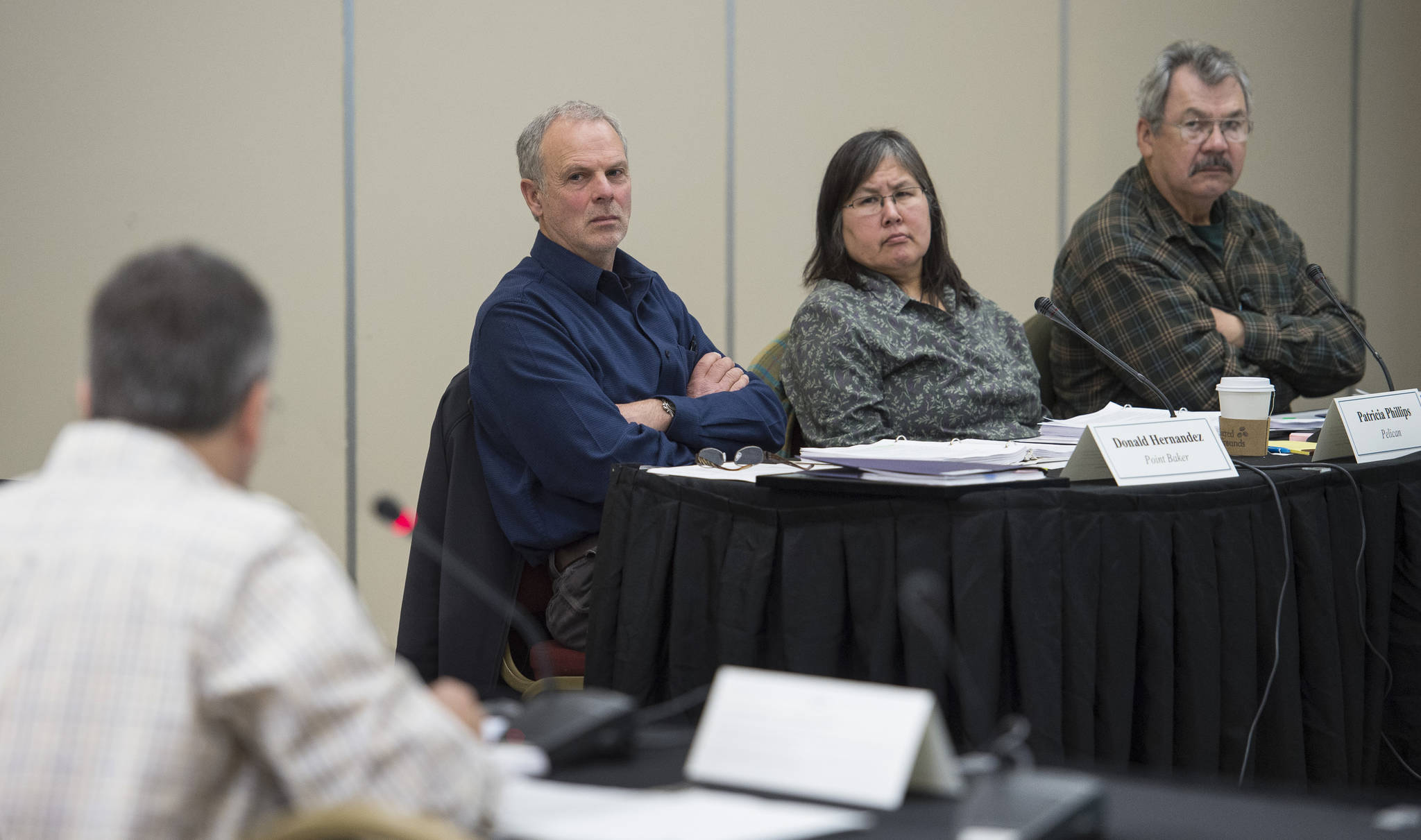Subsistence hunters on Prince of Wales Island (POW) may be able to shoot and trap more wolves if a proposal passed this week is approved by a federal board. The proposal comes less than two years after the U.S. Fish and Wildlife Service denied a petition to list the wolves as endangered.
The Southeast Alaska Subsistence Regional Advisory Council (SEASRAC), which represents the interest of rural hunters in Southeast Alaska, voted on Wednesday to set a harvest level of up to 30 percent of the island’s population of Alexander Archipelago wolves. That represents a 10 percent increase in subsistence wolf takings over a previously-used harvest level of 20 percent.
The island’s population of Alexander Archipelago wolves had dipped to a low of 89 animals in 2014, but rebounded last year to 230 animals. The Alexander Archipelago wolf, a distinct subspecies of gray wolf which can be found on POW, was denied inclusion in the Endangered Species list in January 2016.
The council considered 11 proposals at their three-day meeting this week. While others took just minutes to get to a vote, the decision to increase wolf hunting took more than four hours before passing 9-2.
“It’s important for everyone to realize that the Unit 2 population of wolves is in the national spotlight,” council member Robert Schroeder said. “We do need to be careful about how we manage it, both in the appearance in the craft.”
Three POW tribal organizations supported the proposal, citing the difficulty of harvesting deer when wolf populations increase. The Alaska Department of Fish &Game advised against increases, saying they would confuse hunters and may jeopardize a still-recovering wolf population.
ADFG Regional Supervisor Ryan Scott expressed concern about going over 20 percent harvest level. Hunters harvest only a small amount of wolves on the island, making in-season management difficult.
Scott said ADFG wants to allow hunters to harvest as many wolves as they’re allowed by law, but a lack of immediate reporting means they often have to predict when that happens. Hunters have 14 days to make sure ADFG knows a wolf has been killed.
Last year, the department received criticism after hunters were allowed to harvest 30 wolves, eight more than harvest levels allowed.
Wolf hunting is currently open on POW, but the proposal will have to be approved by the Federal Subsistence Board at an April meeting before going into effect July 1, 2018. Hunters can harvest 46 wolves on the island this year.
The SEARSAC fall meeting continues today, with three proposals left for consideration, including a proposal to establish a subsistence season for moose hunting in Berners Bay. A full list of meeting materials can be found at https://www.doi.gov/sites/doi.gov/files/uploads/searac_fall2017_meeting_book_small.pdfor here.
Other proposals passed at the SEASRAC fall meeting, as of Tuesday:
• A proposal to lower bag limits for non-rural deer hunters in Unit 2 (POW) from four deer to two.
• Rural hunters from any game management area in Southeast would be able to continue hunting for deer for traditional and customary use. This means a subsistence hunter from Craig would be able to hunt for deer for a potlatch or other cultural use while visiting other rural Southeast communities.
• A proposal to extend wolf hunting season in a portion of Unit 1A and 1B.
• A proposal to extend wolf hunting season in Unit 3.
• A proposal to limit designated hunter deer harvests in Units 1B and 3.
Correction: The initial version of this story stated that the Alexander Archipelago wolf was denied listing for the Endangered Species List less than a year before the Southeast Regional Subsistence Advisory Council meeting in Juneau. It was denied less than two years ago this week. This story has been updated to reflect that timeline.
• Contact reporter Kevin Gullufsen at 523-2228 or kevin.gullufsen@juneauempire.com.

